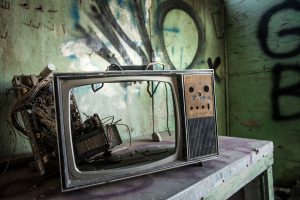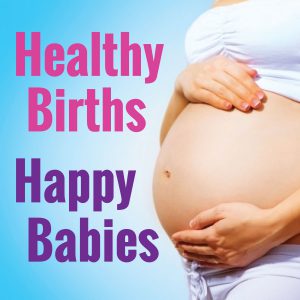
Healthy Births, Happy Babies: Episode 60 – Pregnancy is NOT a Disease
So here’s the thing. A couple of month’s ago, when I decided to start this blog, I wasn’t sure if I’d enjoy it. I mean, sure, if I had unlimited time to sit and drink my coffee and listen and write, then yes. But I don’t. I have three small children. I’m finishing up my doula certification, working on getting the business side up and running.
Speaking of running, I find it super important for both my body and my brain to fit that into my week as well.
Then there’s the LAUNDRY. I mean seriously, where does it all come from? How can I put the machine on every day and still there’s no end in sight? Anyway, I digress.
Don’t get me wrong, I know how incredibly lucky I am to be able to be there to take care of my children. To be able to follow my heart and not have to take the first job I find. But, still, I worried that a blog might be more of a burden than a joy. But, I love it!
It is a lot of work but I am really, really enjoying it. I so hope that this comes through for you when you are reading it. One of the reasons I am loving it so much is that not only do I get to go back and listen to some episodes that I loved but I also get to listen to totally new episodes from podcasts I hadn’t discovered yet.
Ok, I think I have gone off topic for long enough. Today’s episode (as you might have guessed) comes from a podcast that I had not yet discovered but am really happy to have found.

Why this podcast?
I really like the fact that this podcast is hosted by a doctor. Really? What’s so great about that? I hear you cry. Well, in the birth world I definitely run into the idea that doctors are all very pro medicalised birth (induction, C-section, women in bed strapped to machines) and midwives are all very pro physiological birth (letting nature do its thing, not interfering, birthing in the woods next to the deer..).
Ok, I may be exaggerating slightly here but you get my point. The host of this podcast, Dr. Jay Warren, goes a long way towards dispelling these ideas. The episodes are designed to share information on how to feel –
’’safe supported and empowered during your pregnancy and birth’’
Dr. Jay and his team do seem to be geared towards undisturbed birth but even if you are not, this podcast covers such a range of topics that I know you’ll find a whole heap of really useful information. From prenatal nutrition, postpartum recovery and circumcision to unassisted birth, saving your sex life after having a baby and vaginal breech birth.

How does it look?
Episodes are released weekly and are generally in the thirty to thirty-five-minute range. The majority of the episodes feature guests, often doctors, who talk about their chosen topic. Again, it’s U.S. based but with so much great information on subjects across the board, you will definitely find a lot that is relevant to you.
I will say that because each episode features a different expert it is hard to predict how good of a storyteller that person will be. How good they will be at letting their knowledge and words flow freely. Although I have only listened to a handful of episodes so far I have not found that this detracts from the wealth of knowledge and expertise on offer.

Who should listen to this episode?
Anyone planning on giving birth.
Anyone whose partner is planning on giving birth.
Where you choose to have your baby is completely your decision but it IS a decision, not a given.
I hope that this episode will be a great starting point to get you thinking about the different options.
The episode
This episode features Dr. Stuart Fischbein who has his own podcast, Dr. Stu’s Podcast, and is quite a character!
In 2004 he co-authored the book ‘Fearless Pregnancy, Wisdom & Reassurance from a Doctor, a Midwife and a Mom’ and has been awarded, not once but twice, the Doulas Association of Southern California Physician of the year award and was the first person to receive their lifetime achievement award for his support of pregnant women.
You may also have seen him interviewed in Ricky Lake’s groundbreaking documentary, The Business of Being Born. If you have not seen this, by the way, I highly recommend it.
After twenty-eight years of delivering babies in a hospital setting, he now practices a midwifery model of care and works with home birth midwives.
Dr. Stu trained in the early 1980’s and was taught skills such as vaginal breech and vaginal twin delivery. He points out that these days those skills are often no longer taught and are therefore not options for many women. Perhaps controversially, he goes on to question the very role of an obstetrician.
If they are no longer taught the skills that make them unique, he asks, what is it that they have to offer over, at one extreme, a general surgeon and at the other extreme, a midwife? Food for thought indeed.

Dr. Stu admits to coming out of his training feeling like he was the
”hottest thing around”
However, after agreeing to be a backup physician for a team of midwives he learned that there is a very different way of doing things for women who experience problem-free pregnancies.
Over time this led him to practice in another way. He cared for women in a holistic manner with the mindset of –
”pregnancy as wellness not pregnancy as disease”

I found it really interesting that at one point Dr. Stu compares the processes of pregnancy and labour to breathing or digestion. He points out that in general, these are not processes that you have to think about, they just happen. You don’t go to a doctor to get help digesting your lunch. It is only when you encounter a problem that you seek medical advice.

What happens then, in a society where the vast majority of women, who have totally healthy pregnancies with no issues, see a doctor?
Who go to hospital to give birth?
They will be surrounded by people whose job it is to ‘fix stuff’. Who, perhaps, EXPECT that they will need to fix stuff.
They may well experience a certain amount of fear or anxiety at being in a hospital as we tend to associate hospitals with sickness. Fear can, in turn, inhibit the flow of labour.
Cue the cascade of interventions to ‘fix’ what may not have needed fixing in an environment that felt safe and comfortable, surrounded by people who view birth as a normal, physiological function, not a medical problem to be solved.
As we are in the territory of home v hospital, I was happy to hear Dr. Stu mention the difference between actual risk and relative risk. If you read that, for instance, developing a certain complication is three times more likely with home birth that could still mean a one in a million chance. It is so important to keep this in mind when researching any kind of decision for your pregnancy and birth.
The midwifery model honours the normality of birth
Dr. Stu, in talking about his experience of home birth, freely admits that it is not fair to make a direct comparison to hospital birth because he gets to ”cherry pick” his clients. He gets to build a relationship with them, spend more time with them during appointments and there is a far greater chance that he will be with them when they give birth.
However, he goes on to say that his success rate with VBACS (vaginal birth after C-section), twins and breech birth is much better now than it ever was during his time working in hospitals. For me, the below quote epitomises how birth could look for the majority of women –
”At home, we start with healthy people and we leave them alone”

To wrap up
Whether or not you are considering home birth I think that the theme of this episode, ”if it ain’t broke, don’t fix it” is an incredibly important one to keep in mind. It is often only when we start to disturb the natural process of birth that problems arise.
Wherever you choose to meet your baby, keep in mind that, in general, your body knows what to do. You know what to do. Going with the flow and letting birth simply unfold is, for most women, all that is needed.
More episodes on this topic
Birthful: Episode 64 – Asking more of your OB with Dr.Stu Fischbein
Birthful: Click here to find 5 more episodes related to home birth
The Pregnancy Podcast: Episode 42 – Home Birth
The Cord: Episode 19 – A U.K. Home Birth & The Cord: Episode 21 – Home Birth Cesarean
Healthy Births Happy Babies: Episode 42 – Is a Home Birth with a Midwife right for you?
The Birth Hour: A HUGE range of Home Birth stories from around the world
There are sooo many more but for now, I’ll stick to episodes from podcasts I have already featured.
Emily Wills is a doula based in Stockholm. She believes that birth can be a beautiful and empowering experience and started this blog as a way of sharing some really great podcasts. She is also a mother of three and an enthusiastic runner.
